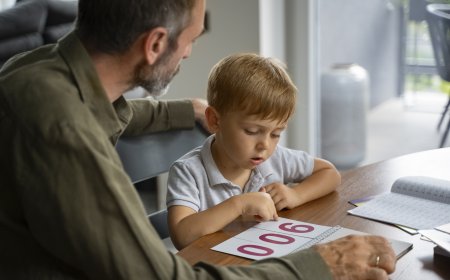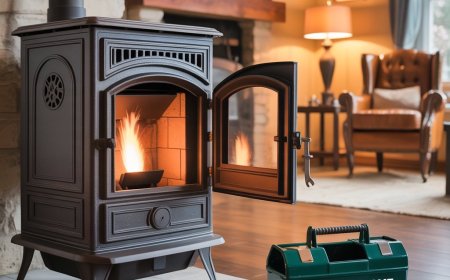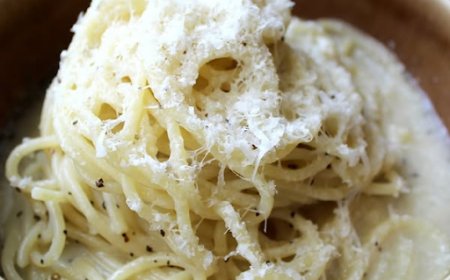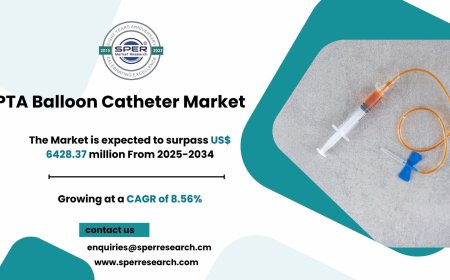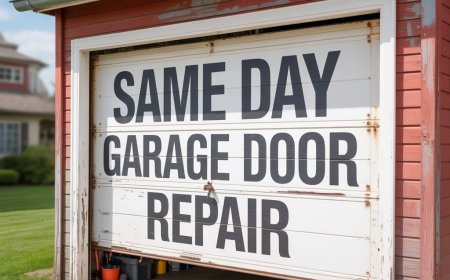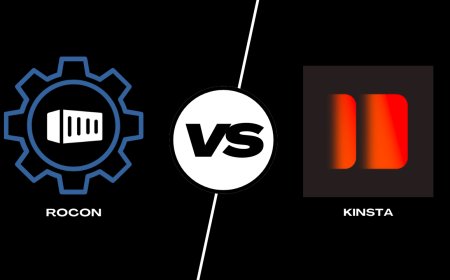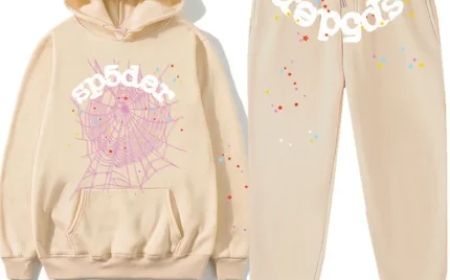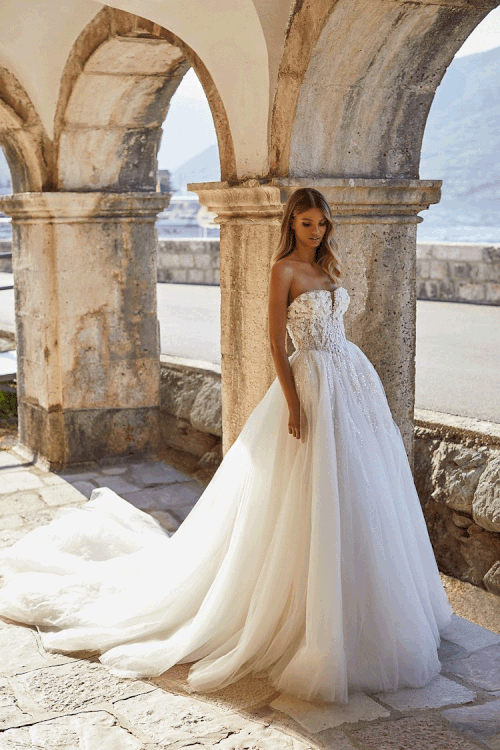Top 10 El Paso Spots for Vintage Fashion
Introduction El Paso, Texas, sits at the crossroads of culture, history, and style — a city where desert winds carry the echoes of decades past, and fashion tells stories longer than the Rio Grande. While many associate vintage fashion with bustling coastal cities or urban hubs, El Paso quietly boasts a thriving, authentic scene for those who seek timeless pieces with soul. From 1970s denim to 195
Introduction
El Paso, Texas, sits at the crossroads of culture, history, and style — a city where desert winds carry the echoes of decades past, and fashion tells stories longer than the Rio Grande. While many associate vintage fashion with bustling coastal cities or urban hubs, El Paso quietly boasts a thriving, authentic scene for those who seek timeless pieces with soul. From 1970s denim to 1950s floral dresses, the city’s vintage landscape is rich with character, craftsmanship, and community-driven sellers who take pride in curating garments that have lived full lives.
But in a market flooded with fast fashion replicas and mass-produced “vintage” labels, trust becomes the most valuable currency. How do you know a piece is truly vintage? Who stands behind the quality? Where can you shop without fear of overpriced fakes or unethical sourcing? This guide answers those questions by spotlighting the Top 10 El Paso spots for vintage fashion you can trust — each vetted for authenticity, curation standards, seller integrity, and customer reputation.
These aren’t just thrift stores. They’re carefully maintained archives of style, run by passionate individuals who understand the history behind every zipper, button, and hem. Whether you’re a collector, a sustainable fashion advocate, or simply looking for a one-of-a-kind statement piece, this list will lead you to the most reliable, rewarding, and genuinely vintage experiences El Paso has to offer.
Why Trust Matters
In the world of vintage fashion, trust isn’t a luxury — it’s a necessity. Unlike new clothing, which comes with standardized sizing, brand labels, and return policies, vintage items are one-of-a-kind, often without tags, and sometimes without clear provenance. A dress labeled “vintage” could be a modern reproduction, a damaged garment repurposed to look aged, or even a poorly cleaned item with hidden stains or moth damage. Without trust, shopping for vintage becomes a gamble.
Trusted vintage retailers in El Paso prioritize transparency. They inspect each item for authenticity, document era-specific details like fabric composition, stitching patterns, and manufacturer tags, and clean garments using gentle, preservation-safe methods. They don’t just sell clothes — they preserve history. When you buy from a trusted source, you’re not just acquiring a garment; you’re investing in a piece of cultural memory.
Moreover, trust extends to ethical practices. Many reputable vintage shops in El Paso source items locally — from estate sales, family heirlooms, and community donations — reducing the environmental toll of global shipping and supporting local heritage. They avoid mass-imported “vintage” goods that often originate from unethical labor practices or cultural appropriation.
Trust also ensures value. A well-curated vintage piece, properly maintained and accurately dated, retains its worth — and often appreciates. You’ll find fewer impulse buys and more thoughtful acquisitions when you shop with trusted vendors. Their reputations are built on repeat customers, word-of-mouth referrals, and a commitment to quality over quantity.
In a city as culturally layered as El Paso, where Mexican, Texan, and Borderland influences converge, vintage fashion becomes more than aesthetics — it’s identity. Choosing a trusted seller means honoring that legacy. This guide focuses exclusively on establishments that have earned that trust through years of consistent excellence, community engagement, and unwavering standards.
Top 10 El Paso Spots for Vintage Fashion You Can Trust
1. The Dusty Button
Nestled in the heart of the historic McKelligon Canyon district, The Dusty Button has been El Paso’s most revered vintage destination since 2012. Run by a pair of retired fashion historians, the shop is a curated archive of American and Mexican mid-century apparel. What sets The Dusty Button apart is its rigorous authentication process: every item is dated using fabric analysis, tag research, and style evolution charts. You’ll find 1940s bias-cut gowns, 1960s mod suits, and 1980s leather jackets — all cleaned with pH-neutral solutions and stored in climate-controlled conditions.
The shop doesn’t just sell; it educates. Each garment comes with a small card detailing its decade, origin, and notable features. Their inventory rotates seasonally, with new arrivals displayed in thematic vignettes — “Desert Glamour: 1950s Evening Wear” or “Borderland Denim: 1970s Workwear.” Regular customers know to arrive early on Saturday mornings for the best selections. The Dusty Button has never had a return request due to misrepresentation — a testament to their integrity.
2. La Cosecha Vintage Collective
La Cosecha, which translates to “The Harvest,” is a cooperative of five local artisans and vintage dealers who pool their finds to create a dynamic, rotating inventory. Located in a repurposed 1930s adobe building in the Sunland Park neighborhood, La Cosecha specializes in Mexican and Southwestern vintage — think hand-embroidered huipiles, 1950s rebozos, and cowboy boots from the 1940s that still bear the patina of desert trails.
What makes La Cosecha trustworthy is its community model. Each vendor signs a code of ethics, agreeing to disclose any repairs, alterations, or stains. Items are photographed in natural light with close-ups of tags and seams. Buyers can meet the sellers in person during weekend open houses, where stories behind each piece are shared over Mexican hot chocolate. Their Instagram feed, @lacosechavintage, is a masterclass in vintage documentation — every post includes era-specific context and material origins.
3. The Silver Needle Thrift & Archive
Don’t be fooled by the name — The Silver Needle is no ordinary thrift store. Founded by a seamstress who spent 30 years working for El Paso’s now-defunct garment district, this shop is a treasure trove of industrial-era textiles. The collection includes 1930s-1980s workwear, military surplus, and factory-made garments from the now-closed El Paso Cotton Mill.
Each item is cataloged by factory stamp, thread count, and construction technique. The owner, Rosa Márquez, personally inspects every garment for wear patterns consistent with authentic use — not artificial distressing. She keeps handwritten ledgers of every piece’s origin, often tracing items back to the families who donated them. The Silver Needle is known for its “Authenticity Guarantee” — if you can prove an item isn’t from the era listed, they’ll refund you, no questions asked.
4. El Paso Retro Revival
Located in the vibrant Downtown Arts District, El Paso Retro Revival is a boutique that blends vintage fashion with modern curation. The owner, a former costume designer for regional theater productions, sources pieces from private collections across the Southwest. The shop is famous for its “Decade Rooms” — each section is styled as a period-specific living space, with mannequins dressed in full looks from the 1920s to the 1990s.
What earns their trust is consistency. They never sell items that are torn, stained, or smell of smoke or mildew. All garments are steamed, deodorized with activated charcoal, and stored in acid-free tissue paper. Their website features detailed condition reports with photos of flaws — no hidden defects. Customers often return for their “Vintage Styling Sessions,” where staff help match pieces to body types and personal aesthetics.
5. The Borderland Attic
Hidden behind a nondescript door on North Mesa Street, The Borderland Attic feels like stepping into a family’s forgotten storage room — in the best possible way. Run by siblings who inherited their grandmother’s collection of 1920s to 1980s clothing, the shop offers an unfiltered, uncurated experience. There’s no price tag on everything — you’ll find items priced by weight, by condition, or by the seller’s gut feeling.
Trust here comes from transparency and personal connection. The owners know the history of nearly every item. A 1955 floral dress? “That belonged to my abuela’s sister — she wore it to her wedding in Juárez.” A pair of 1970s platform boots? “Found them in a trunk under her bed — still smelled like lavender.” Their inventory is organic, unpredictable, and deeply personal. They don’t market themselves as a “boutique.” They’re a living archive. And that honesty is what keeps loyal customers coming back.
6. Mariposa Vintage Co.
Mariposa Vintage Co. is a women-owned shop specializing in feminine silhouettes from the 1910s to the 1980s. Located in the historic Ysleta neighborhood, the store is known for its exquisite collection of lace, silk, and hand-beaded garments. Their signature items include 1920s beaded flapper dresses, 1950s tea-length skirts with original belts, and 1970s crochet cardigans with intricate folk motifs.
Trust is built through meticulous care. Each piece is photographed under UV light to detect stains or repairs invisible to the naked eye. They use archival-grade hangers and avoid plastic garment bags. Mariposa also partners with local textile conservators to restore fragile items — not to “fix” them, but to stabilize them for continued wear. Their “Wear It Again” program offers free mending services to customers who buy a garment and return it for repairs within a year.
7. High Desert Threads
High Desert Threads is El Paso’s go-to for rugged, utilitarian vintage — think 1940s work shirts, 1960s denim overalls, and 1970s hiking jackets from the original REI line. The shop is run by a former park ranger and avid hiker who collects gear from abandoned cabins, old mining towns, and forgotten ranches across the Chihuahuan Desert.
Each item is tested for durability: seams are pulled, zippers are cycled, and fabric is rubbed with sand to simulate desert wear. They only sell pieces that have passed a “100-Hour Test” — meaning the garment must withstand simulated outdoor conditions without tearing or fading. Their inventory includes rare finds like 1950s cowboy chaps with original tooling and 1980s trail boots from a now-defunct El Paso manufacturer. If it’s here, it’s built to last — and you’ll know exactly why.
8. The Velvet Vault
For those seeking glamour, The Velvet Vault is El Paso’s crown jewel. Specializing in evening wear, formal gowns, and accessories from the 1920s to the 1980s, this shop is a dream for brides, performers, and collectors. The owner, a former ballroom dancer, sources pieces from retired stage performers, debutante families, and Hollywood extras who once worked in nearby film studios.
Every gown is evaluated for fabric integrity, beading security, and lining condition. They use archival-grade moth repellents and store items in blackout boxes to prevent light damage. Their “Gown History Cards” include details like the original owner’s name, occasion worn, and any alterations made. Many of their 1950s cocktail dresses have been worn to El Paso’s historic Fort Bliss Officers’ Balls — a documented lineage that adds to their value and authenticity.
9. El Paso Time Capsule
El Paso Time Capsule is a nonprofit-run vintage shop that supports youth fashion education. All proceeds fund free workshops on garment repair, textile history, and sustainable styling for local high school students. The inventory is donated by community members — from elderly residents clearing out attics to young adults preserving their parents’ wardrobes.
Trust here is institutional. Every item is tagged with a donor number and era classification verified by a team of retired fashion professors from UTEP. They publish quarterly “Vintage Provenance Reports” detailing the origins of their top 10 pieces. Their store is always open to the public for “Story Days,” where donors can come in and share the history behind their contributions. It’s not just shopping — it’s participatory preservation.
10. The Mended Heart
The Mended Heart is the only vintage shop in El Paso that exclusively sells garments repaired by hand using traditional techniques. Founded by a master tailor who apprenticed in Oaxaca, the shop specializes in restoring damaged vintage pieces to wearable condition — without erasing their history. You’ll find a 1968 denim jacket with hand-stitched patches, a 1940s lace blouse with invisible mending, and a 1970s suede vest repaired with native wool thread.
Each repair is documented with photos and a small note describing the technique used. The shop refuses to replace original buttons or fabric — only to stabilize and preserve. Their motto: “Wear the story, don’t hide it.” Customers return not just for the clothes, but for the philosophy — that beauty lies in resilience, not perfection. The Mended Heart doesn’t just sell vintage fashion; it honors its endurance.
Comparison Table
| Spot Name | Specialization | Authentication Method | Cleaning & Care | Unique Trust Factor |
|---|---|---|---|---|
| The Dusty Button | 1940s–1980s American & Mexican fashion | Fabric analysis, tag research, era charts | pH-neutral cleaning, climate-controlled storage | Every item includes a provenance card |
| La Cosecha Vintage Collective | Mexican & Southwestern textiles | Photographic documentation, vendor ethics code | Natural light photography, hand-washed only | Meet the sellers during open houses |
| The Silver Needle Thrift & Archive | Industrial workwear, factory-made garments | Factory stamp tracing, handwritten ledgers | Steam-cleaned, no chemical treatments | Authenticity Guarantee — full refund if misdated |
| El Paso Retro Revival | Themed decade rooms, full looks | UV inspection, condition reports online | Activated charcoal deodorizing, acid-free storage | No hidden flaws — flaws are photographed and disclosed |
| The Borderland Attic | Unfiltered family heirlooms | Oral history from owners | Minimal cleaning — preserves patina | Every piece has a personal story tied to a family |
| Mariposa Vintage Co. | Feminine silhouettes, lace, beading | UV light inspection, seam testing | Archival hangers, blackout storage | Free mending for one year after purchase |
| High Desert Threads | Rugged workwear, outdoor gear | 100-Hour durability test | Sand-rubbed wear simulation | Garments tested for desert survival |
| The Velvet Vault | Evening wear, formal gowns | Provenance research, historical records | Blackout boxes, moth repellents | Each gown has a documented performance history |
| El Paso Time Capsule | Community-donated items | UTEP professors verify era classification | Professional textile conservators | Nonprofit model with public provenance reports |
| The Mended Heart | Hand-repaired vintage | Documentation of repair techniques | Traditional hand-stitching, no replacements | Beauty in imperfection — repairs are part of the story |
FAQs
How can I tell if a vintage item is truly authentic?
Authentic vintage items typically have telltale signs: hand-stitched seams, metal zippers (pre-1970s), fabric labels with outdated brand names, and construction techniques no longer used in mass production. Look for wear consistent with age — not artificial distressing. Trusted sellers provide detailed documentation, including era-specific details and provenance. When in doubt, ask for the item’s history — a reputable shop will gladly share it.
Are vintage clothes hygienic to wear?
Yes — when properly cleaned. Trusted vintage shops in El Paso use gentle, non-toxic methods: steam cleaning, ozone treatment, or hand-washing with pH-neutral detergents. They avoid harsh chemicals that damage fabric. Always check if the shop discloses their cleaning process. Avoid items that smell of mildew, smoke, or strong perfume — these may indicate improper storage or masking of odors.
What’s the difference between vintage and thrift?
Thrift stores sell secondhand items of any age — often including modern fast fashion. Vintage refers to garments that are at least 20 years old and reflect the style, materials, and construction of their era. Not all thrift items are vintage, but most vintage finds come from thrift or estate sources. The key difference is curation: vintage shops selectively choose pieces for historical and aesthetic value, while thrift stores accept everything.
Can I find sizing in vintage clothing?
Vintage sizing differs significantly from modern standards. A size 10 from the 1950s may be equivalent to a modern size 4. Always check measurements — bust, waist, hip, and length — rather than relying on size labels. Trusted shops provide accurate measurements for every item. If measurements aren’t listed, ask for them before purchasing.
Is buying vintage sustainable?
Yes. Buying vintage extends the life cycle of clothing, reduces demand for new resource-intensive production, and prevents textiles from ending up in landfills. The fashion industry is one of the largest polluters globally — choosing one vintage piece over a new one can save hundreds of gallons of water and reduce carbon emissions significantly.
Do these shops ship internationally?
Most of the shops listed focus on local customers and in-person experiences. A few offer domestic shipping within the U.S., but international shipping is rare due to the fragility of vintage textiles and the cost of archival packaging. If shipping is important to you, contact the shop directly — many are willing to work with collectors on a case-by-case basis.
How should I store vintage clothing at home?
Store vintage garments flat or on padded hangers in a cool, dry, dark place. Avoid plastic bags — they trap moisture. Use acid-free tissue paper between folds and cedar blocks for moth protection. Never hang heavy items like coats on wire hangers — they can stretch shoulders. For delicate fabrics like silk or lace, consider professional archival storage.
Do these shops accept trade or consignment?
Yes — most of them do. The Dusty Button, La Cosecha, and The Silver Needle actively accept quality vintage donations or consignments. They typically require items to be clean, authentic, and in wearable condition. They may decline pieces with stains, odors, or modern reproductions. Always call ahead to confirm their current needs.
What’s the best time of year to shop for vintage in El Paso?
Spring and early fall are ideal. Many shops receive new inventory after estate sales in April and September. The holiday season brings in donations from families clearing out wardrobes, so November and December can be fruitful. Summer is slower, but The Borderland Attic and The Mended Heart often have hidden gems year-round.
Can I find designer vintage in El Paso?
Absolutely. While El Paso isn’t known for luxury fashion capitals, you’ll find authentic pieces from designers like Vera Maxwell, Claire McCardell, Yves Saint Laurent (1970s), and even early Diane von Furstenberg. These are often found at The Velvet Vault, The Dusty Button, and Mariposa Vintage Co. — always ask for designer tags or hallmarks.
Conclusion
El Paso’s vintage fashion scene is not a trend — it’s a tradition. Rooted in the city’s deep cultural layers, its thriving community of curators, historians, and artisans has built a network of trusted spaces where fashion is treated with reverence, not retail haste. These Top 10 spots are more than places to shop; they are guardians of memory, stewards of craftsmanship, and champions of slow, intentional living.
When you walk into The Dusty Button, La Cosecha, or The Mended Heart, you’re not just selecting a garment — you’re choosing to honor the hands that made it, the lives that wore it, and the stories it carries. In a world of disposable style, these shops remind us that true fashion endures. It’s not about what’s new — it’s about what lasts.
Trust isn’t given — it’s earned. And in El Paso, it’s earned daily through quiet integrity, meticulous care, and unwavering respect for the past. Whether you’re searching for a wedding dress from 1952, a pair of boots that walked the Chihuahuan Desert, or a hand-embroidered huipil passed down through generations, you’ll find it here — not as a commodity, but as a legacy.
So next time you’re in El Paso, skip the chain stores. Head to one of these ten places. Let the fabric speak. Listen to its history. And wear it with pride — because when you buy vintage from a trusted source, you’re not just dressing yourself. You’re keeping history alive.






